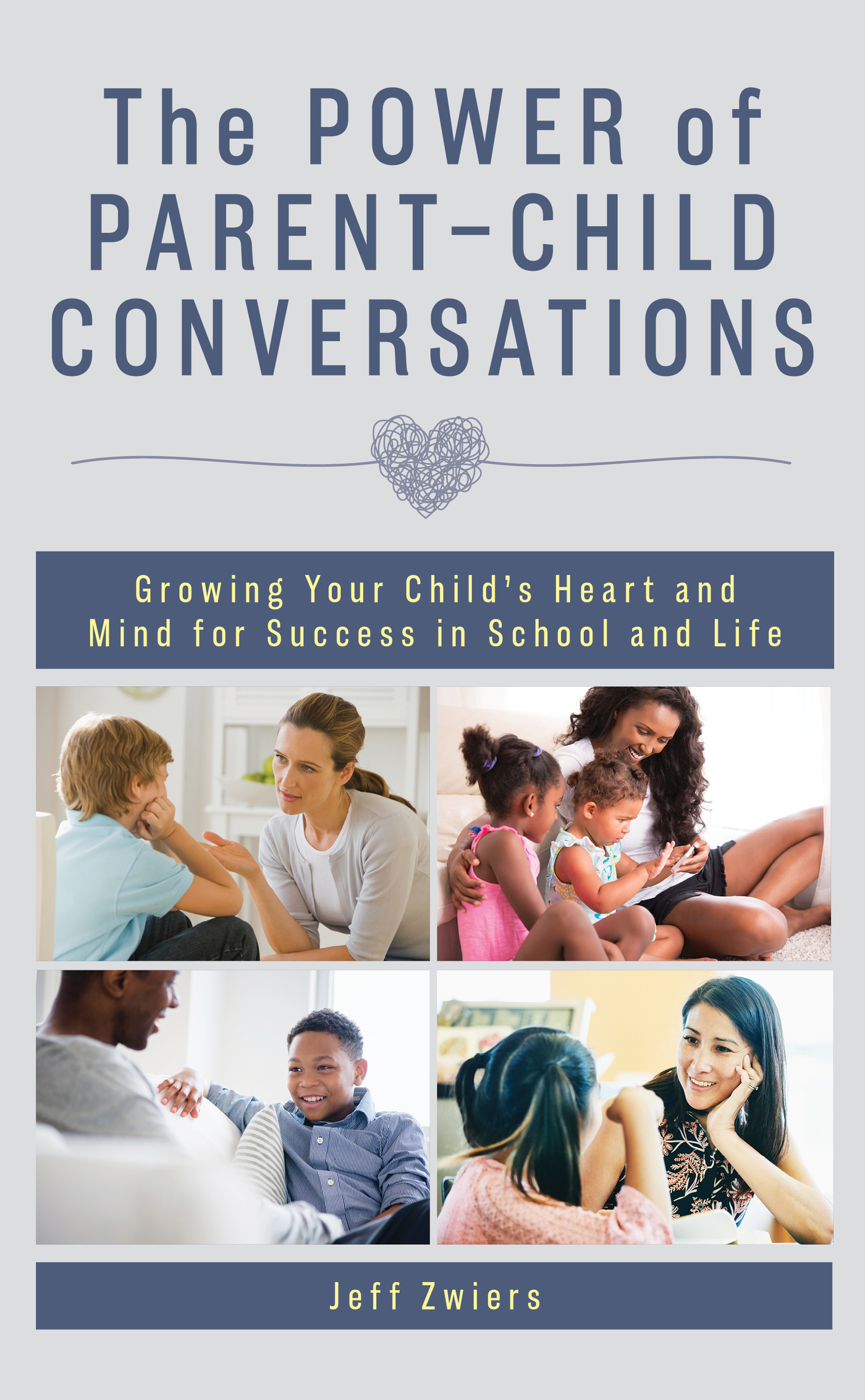The Power of
ParentChild Conversations
The Power of
ParentChild Conversations
Growing Your Childs Heart and Mind for Success in School and Life
Jeff Zwiers
ROWMAN & LITTLEFIELD
Lanham Boulder New York London
Published by Rowman & Littlefield
An imprint of The Rowman & Littlefield Publishing Group, Inc.
4501 Forbes Boulevard, Suite 200, Lanham, Maryland 20706
www.rowman.com
6 Tinworth Street, London SE11 5AL, United Kingdom
Copyright 2021 by Jeff Zwiers
All images created by the author
All rights reserved. No part of this book may be reproduced in any form or by any electronic or mechanical means, including information storage and retrieval systems, without written permission from the publisher, except by a reviewer who may quote passages in a review.
British Library Cataloguing in Publication Information Available
Library of Congress Cataloging-in-Publication Data Available
ISBN 9781475860542 (cloth : alk. paper) | ISBN 9781475860559 (ebook)
 TM The paper used in this publication meets the minimum requirements of American National Standard for Information Sciences Permanence of Paper for Printed Library Materials, ANSI/NISO Z39.48-1992.
TM The paper used in this publication meets the minimum requirements of American National Standard for Information Sciences Permanence of Paper for Printed Library Materials, ANSI/NISO Z39.48-1992.
Introduction
This book is not about preparing your child to get ahead of other children. It is not a race against others to be reading first, to solve fifth-grade math problems in first grade, or to go to a ranked college at age fifteen or eighteen. It is not a competition, and when it becomes one, it often becomes harmful. Nor is this book about the latest surefire fad in child raising. It does not intend to reform how you are currently raising your child. It simply offers ideas that you can add to your already heavy parenting toolbox. The main tools that you will find in this book focus on helping your child to think, to talk with others, to care for others, and to learn more effectively in school.
In the initial stages of my work on this topic, I was reticent to offer parents suggestions on how to talk with their children. I thought it would be too intrusive, given the wide variety of conversations and family dynamics out there. Yet as I talked with parents about this topic and noticed their interest in improving their conversations with children, more and better reasons emerged for putting my findings into a book. Here are four of them.
The first reason is to answer questions that keep surfacing in my work with many different parents and in my own parenting. These include:
How can I improve my skills for having more productive conversations with my child?
How do I help my child improve his or her conversation skills?
How can I make conversations with my child as strong as they can be for building our relationship?
How can I have conversations that prepare my child for academic success?
How can I have conversations that prepare my child for life?
How can I use conversations to grow my childs skills, habits, and traits for being a happy and caring person throughout life?
Hopefully, some of these questions will be answered to varying degrees in the following chapters.
The second reason is to help children succeed in school. I am an educational researcher, teacher, and parent. I spend most of my time immersed in conversations with children and teachers. I observe a wide range of children in school and out, and I spend a lot of time watching how students learn, how their minds develop, how they use language, and how great teachers teach. Much of my mental energy is devoted to children who are struggling to do well in school. Many of them struggle because they have not had hefty helpings of school-like reading and talking at home.
In my work in schools, I have noticed that children have a wide range of challenges. When they come in with lots of homegrown language, knowledge, social skills, and thinking skills, they are more likely to succeed. What happens at home makes a big difference, and a large chunk of this difference comes from conversations.
Being prepared for school actually means several things. First, children need to have a lot of the language that is used in school. This, however, doesnt mean that they need to speak English at home. Students in non-English-speaking homes actually do much better when parents converse with them in their home language. Second, children have to be ready to do the many tasks that school requires, such as listening to complex ideas, following directions, taking tests, working with others, answering questions, reading, and writing. And third, children need to know how to learn. This means authentic learningnot just doing well on tests. Conversations can prepare children in all three of these.
This book emphasizes helping you have academicconversations with your child. These are conversations that help your child work with others to cobuild up meaningful ideas, concepts, and claims in their minds.
The third reason is to help children have happy and fulfilled lives. Of course, school isnt everything. I also wrote this book because there are many children (and adults) who, for a variety of reasons, are not where they could be socially and relationally. Many children (and adults) lack empathy and the abilities to engage in even simple conversation with others. This stems from a variety of reasons, one of which is time spent using screens (video games, social media, TV, etc.).
Children need to learn how to be good family members, friends, partners, work colleagues, community members, and citizens of the world. And conversations are the lifeblood of relationships. To have healthy relationships, children need to develop good traits and values, and they need to reduce bad traits and values. They need to learn how to interpret and predict the feelings of others while doing the same for themselves.
You can use conversations to help your childs mind gravitate toward the healthier and more positive focuses in life, such as helping others and engaging in certain hobbies. As you can see from the planets in the diagram (figure 0.1), there are lots of not-so-healthy topics that can tug our minds in different directions. For some people, certain topics are actually black holes that consume all other things. The widths of the arrows, which vary across people, represent the strength of the pull of the topic. We do not want our childrens minds, now or later, to be dragged down by (i.e., dwell on) the harmful or time-wasting topics. We can use conversations as a tool for highlighting the topics that are more fertile for the healthy growth of young minds and hearts.
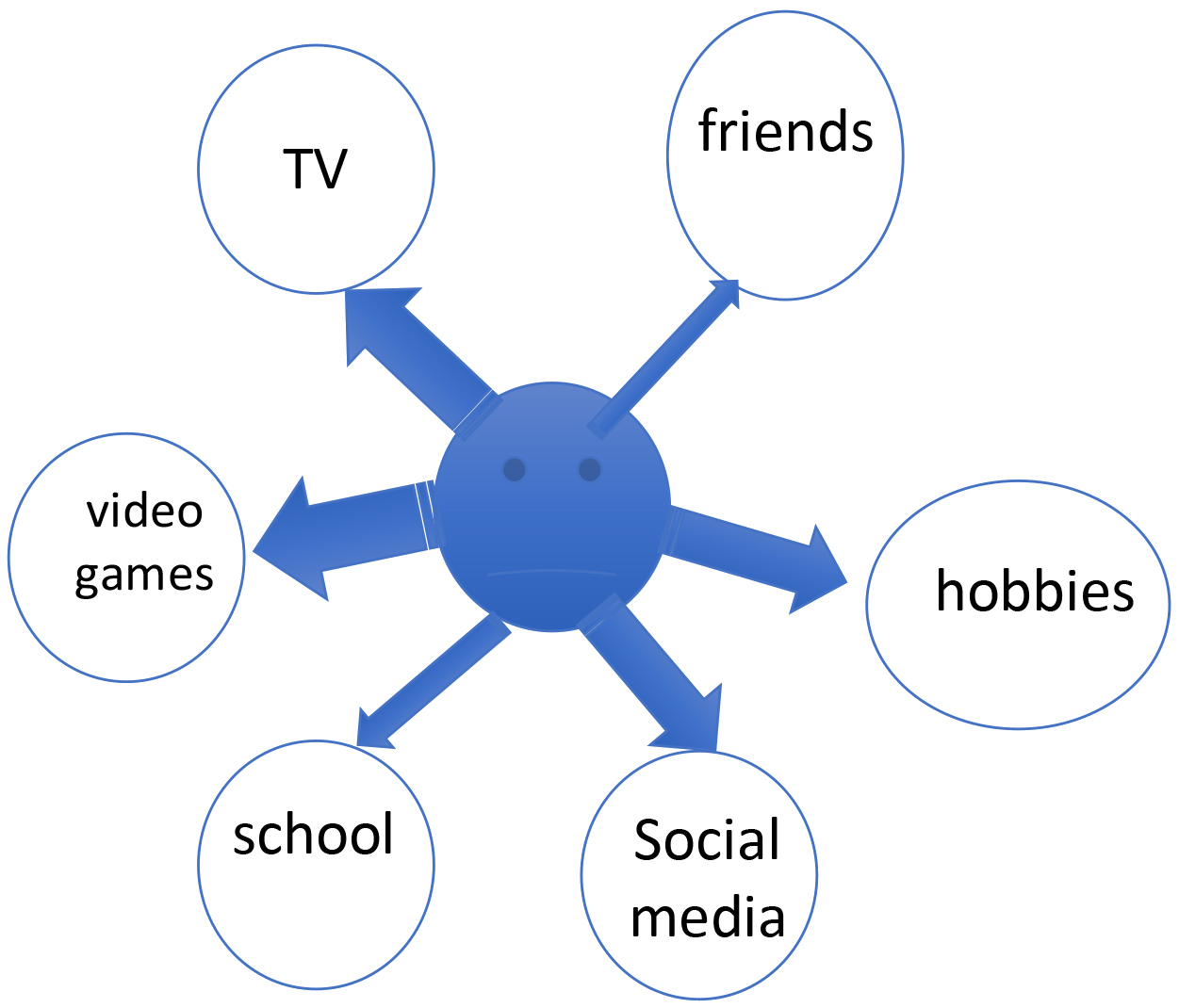
Forces That Tend to Shape and Tug for a Childs Attention
The fourth reason is to improve the world. Good conversations can change the world for the better. When people understand one another and how others think and feel, the world improves. When people learn to work together to solve big problems, the world improves. When good conversations shape children, they grow into adults who are better thinkers, friends, and family members.
Consider the opposite. When people dont know how to talk with one another, bad things tend to result. The daily news, for example, is full of these bad things. We should want to make the world a better place because we are here, and we should want our children to want this too. Growing our childrens hearts and minds through conversations can help.
Next page
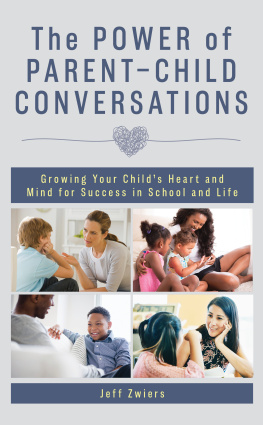
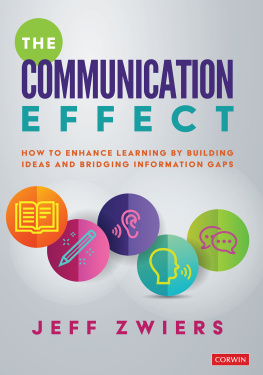

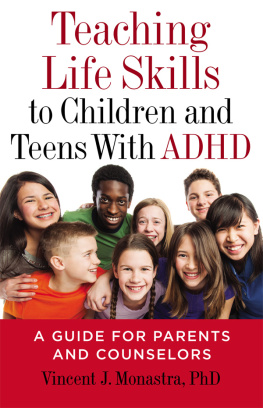

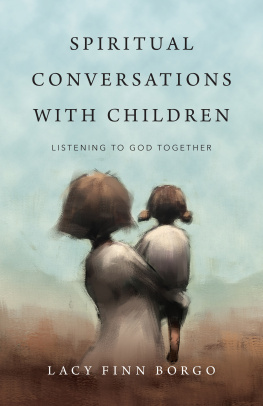
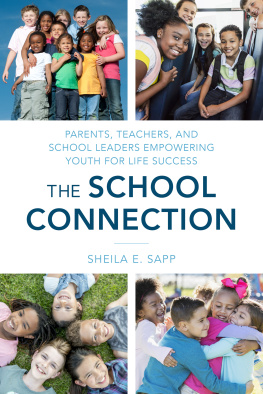


 TM The paper used in this publication meets the minimum requirements of American National Standard for Information Sciences Permanence of Paper for Printed Library Materials, ANSI/NISO Z39.48-1992.
TM The paper used in this publication meets the minimum requirements of American National Standard for Information Sciences Permanence of Paper for Printed Library Materials, ANSI/NISO Z39.48-1992.